Oat flour is a whole-grain flour made from rolled oats. The flour has a mildly nutty flavor and provides a tender, delicate crumb to baked goods. Oats are a great source of fiber and protein and are gluten-free if you make it with certified gluten-free rolled oats.
This flour is a pantry staple, but the price can add up over time. On the other hand, rolled oats are usually half the price for double the amount. It is so much more budget-friendly and easy to make your own! Plus, if you run out of oat flour, simply blend up more.
While homemade flour made from rolled oats is a tad more coarse than store-bought, the result of your baked goods isn’t too noticeable. It’s remarkably easy to make, and you’ll have this gluten-free flour in no time. If you buy your rolled oats in bulk and want to make some more tasty recipes with them, try my oat milk recipe or banana oatmeal cookies recipe.
Key Ingredients You Need
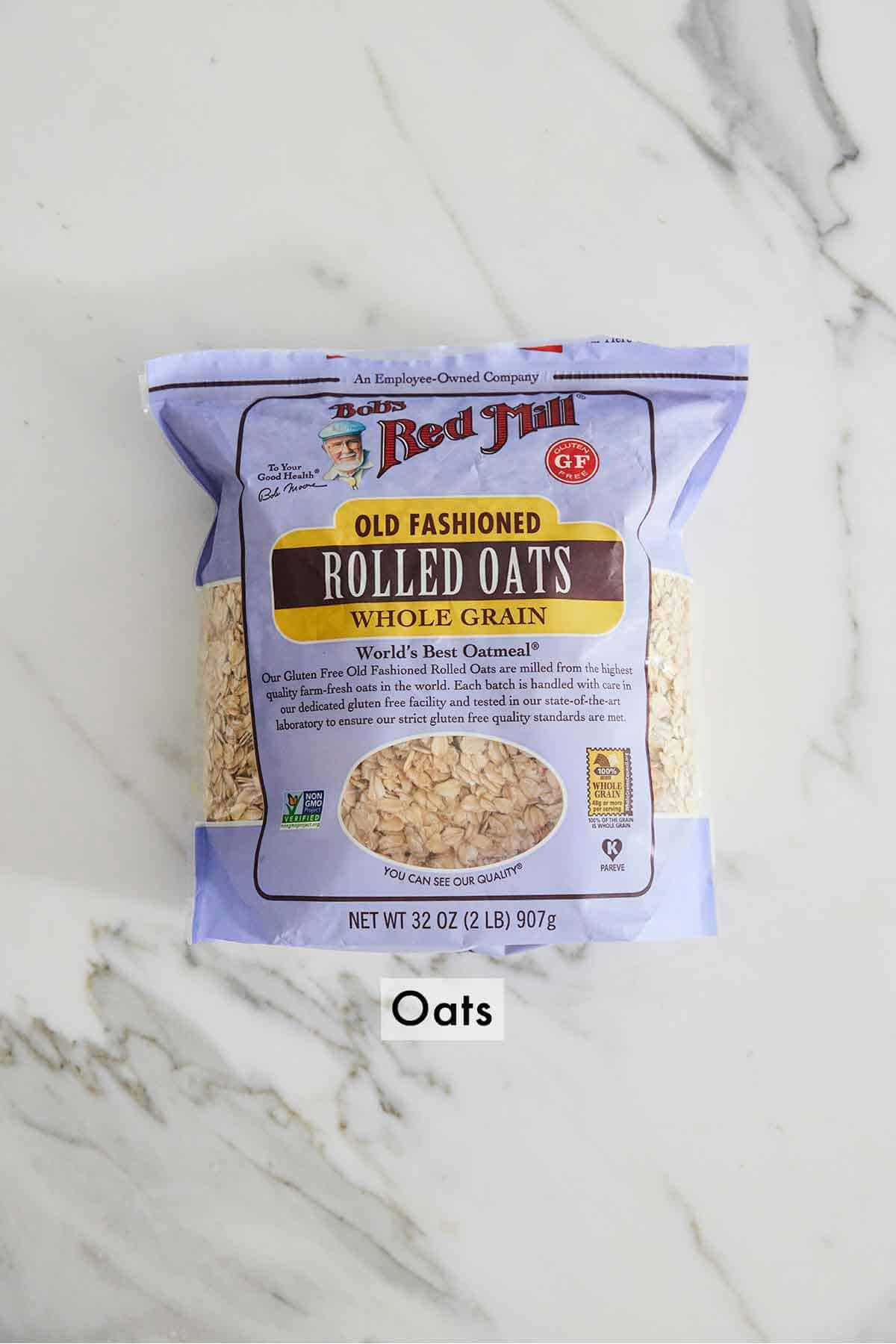
- Oats — I like to use rolled oats (also known as old-fashioned ones), but quick oats work in a pinch. Keep in mind that steel-cut oats as they are denser than rolled oats, so they require more blending time, and you’ll need a strong blender as they’re tougher and less processed than rolled oats.
How to Make Oat Flour
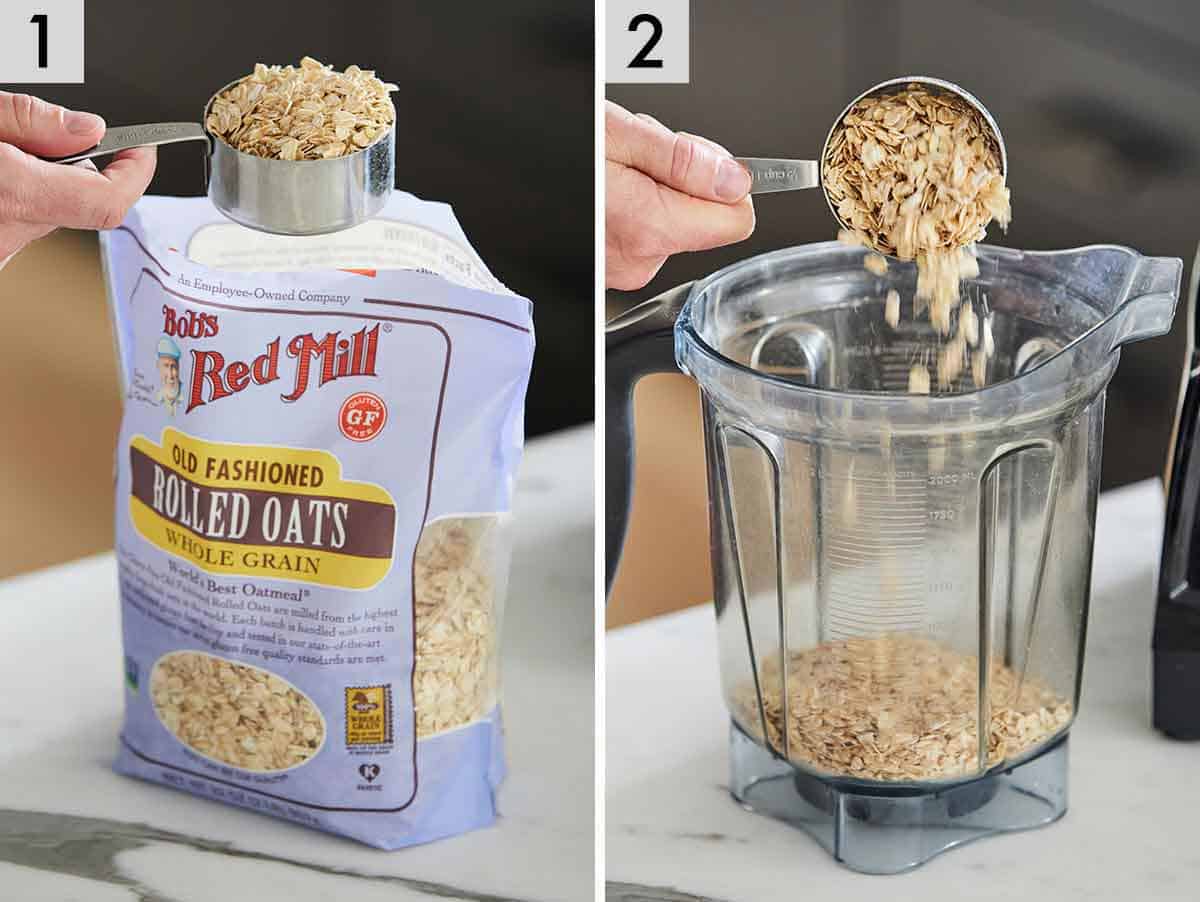
Step 1: Measure the rolled oats.
Step 2: Add the rolled oats to the blender.
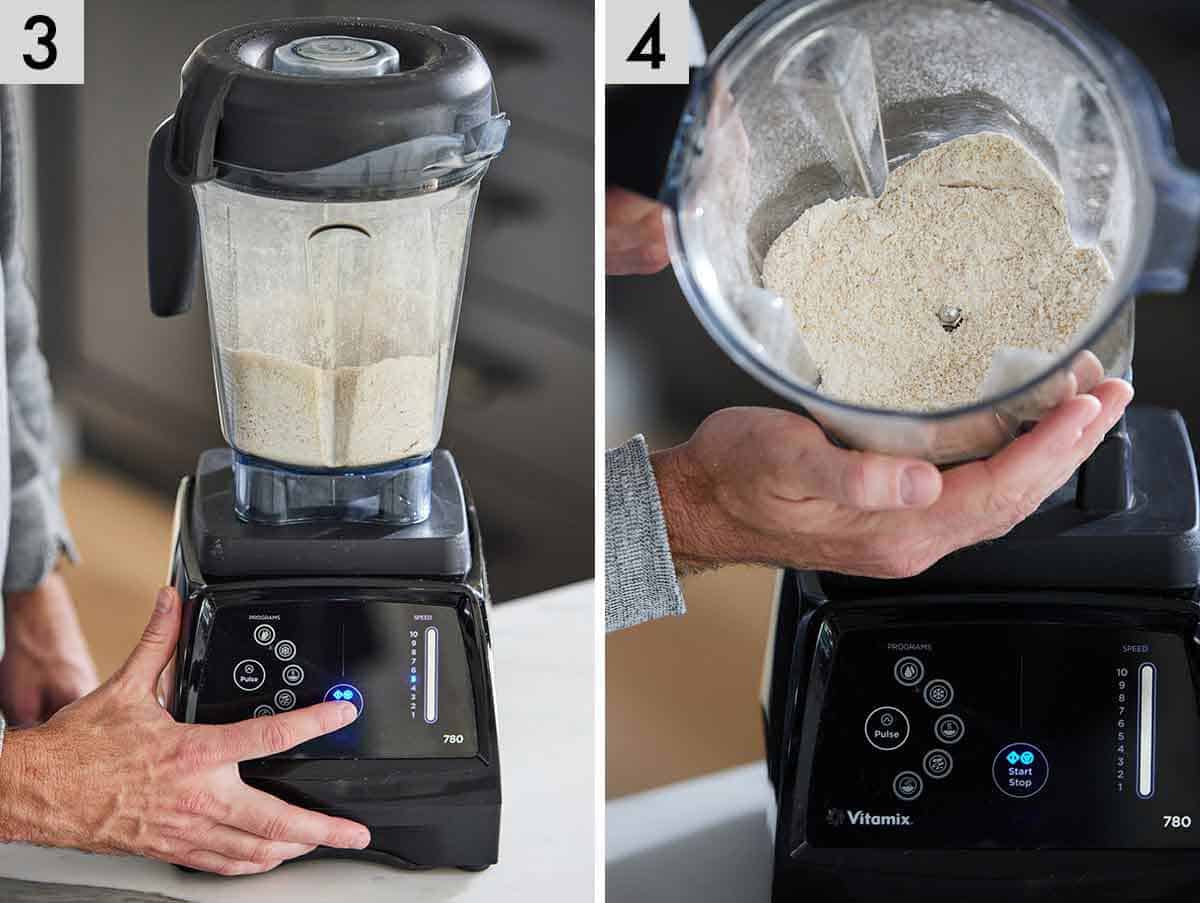
Step 3: Blender until the oats have turned into a fine powder.
Step 4: Check for clumps and continue to blend if there are some.
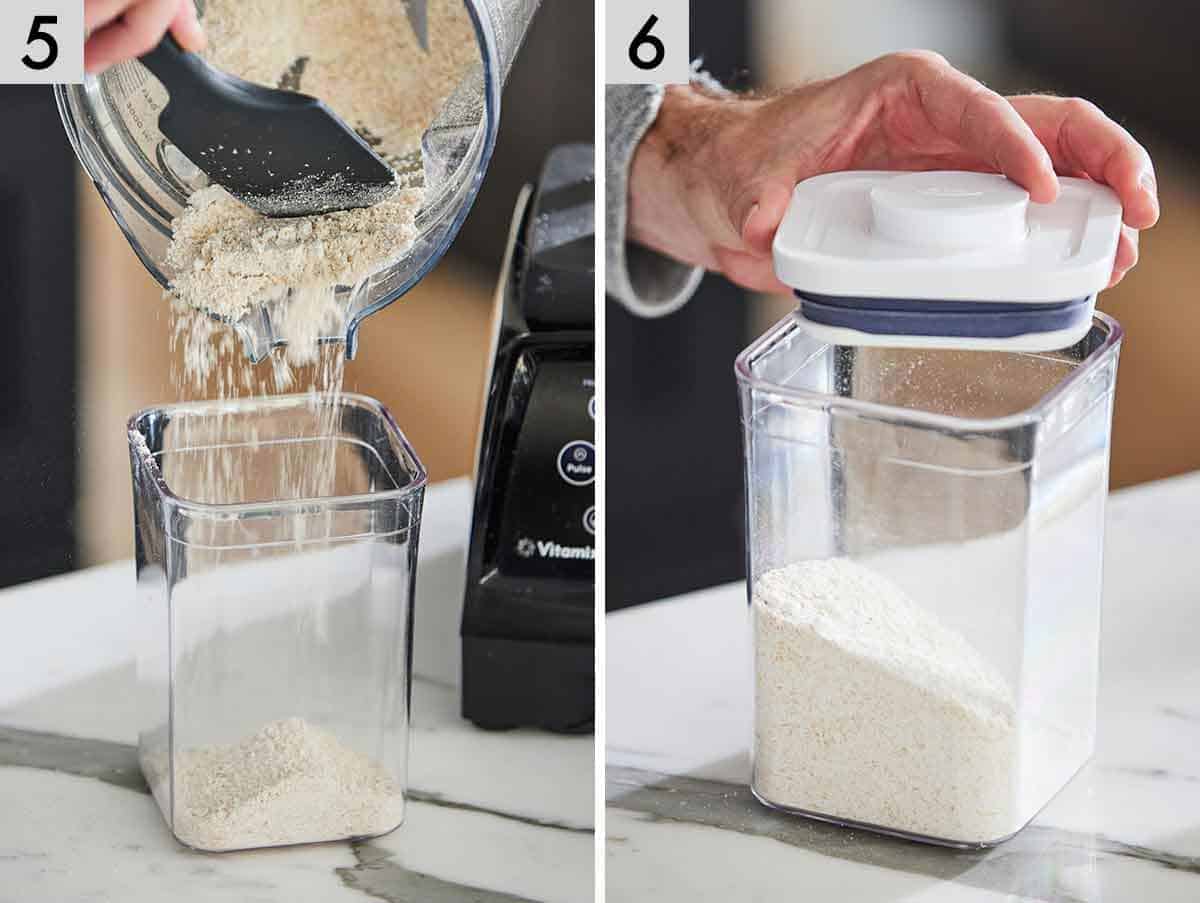
Step 5: Transfer the flour to an airtight container.
Step 6: Store until ready for use.
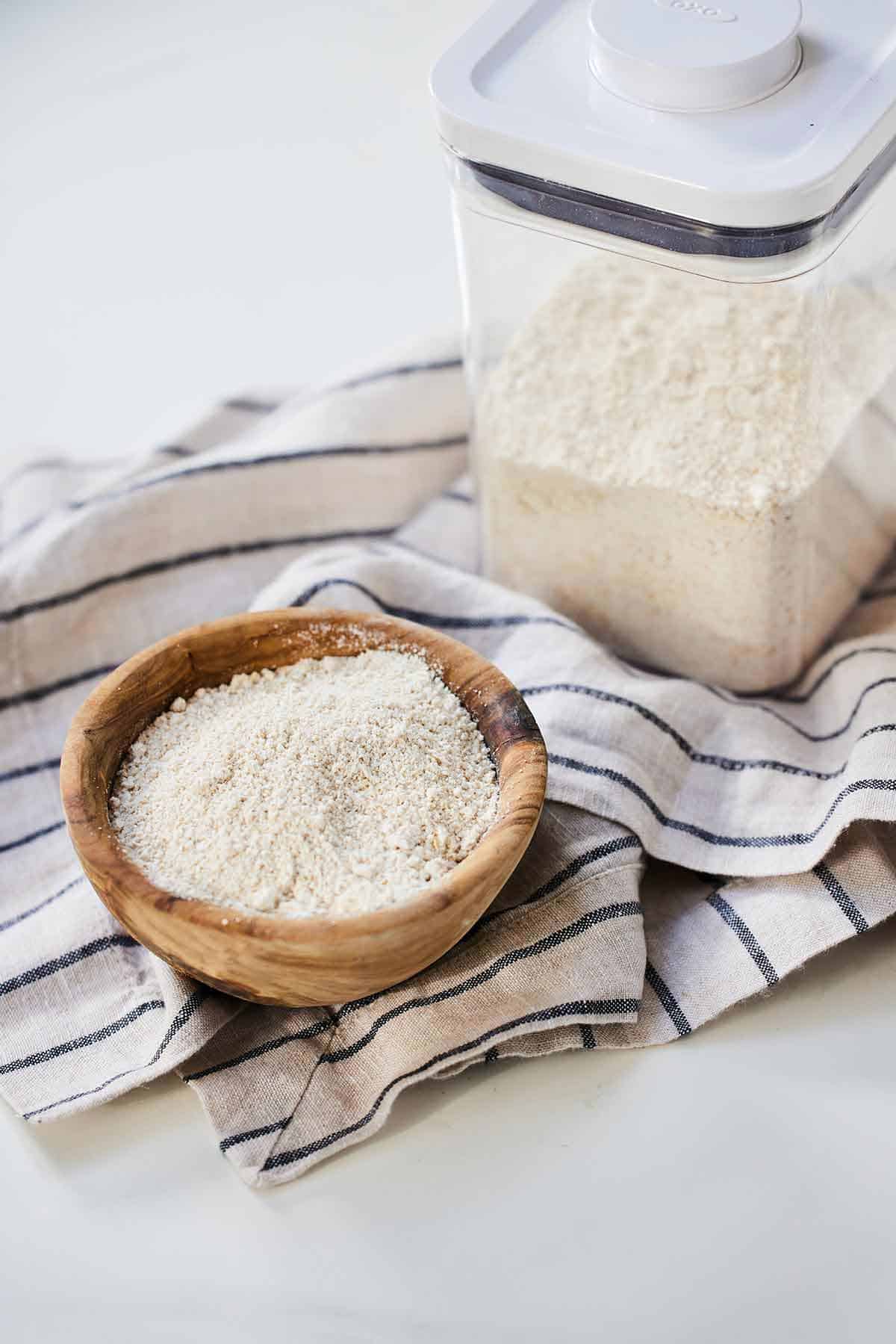
Tips For This Recipe
- If there are a few large pieces that just won’t blend, simply sift them out with a fine-mesh strainer.
- Once the rolled oats have been processed into flour, their shelf life does shorten a bit. Be sure to store them in an airtight container in a cool dark place away from direct sunlight.
- If you do not have a blender, a strong food processor will work as well.
- Make sure to purchase certified gluten-free rolled oats if you require the flour to be gluten-free. While oats are naturally gluten-free, you cannot guarantee that all rolled oats are gluten-free due to cross-contamination at the processing center. Oats labeled gluten-free are processed in a gluten-free facility.
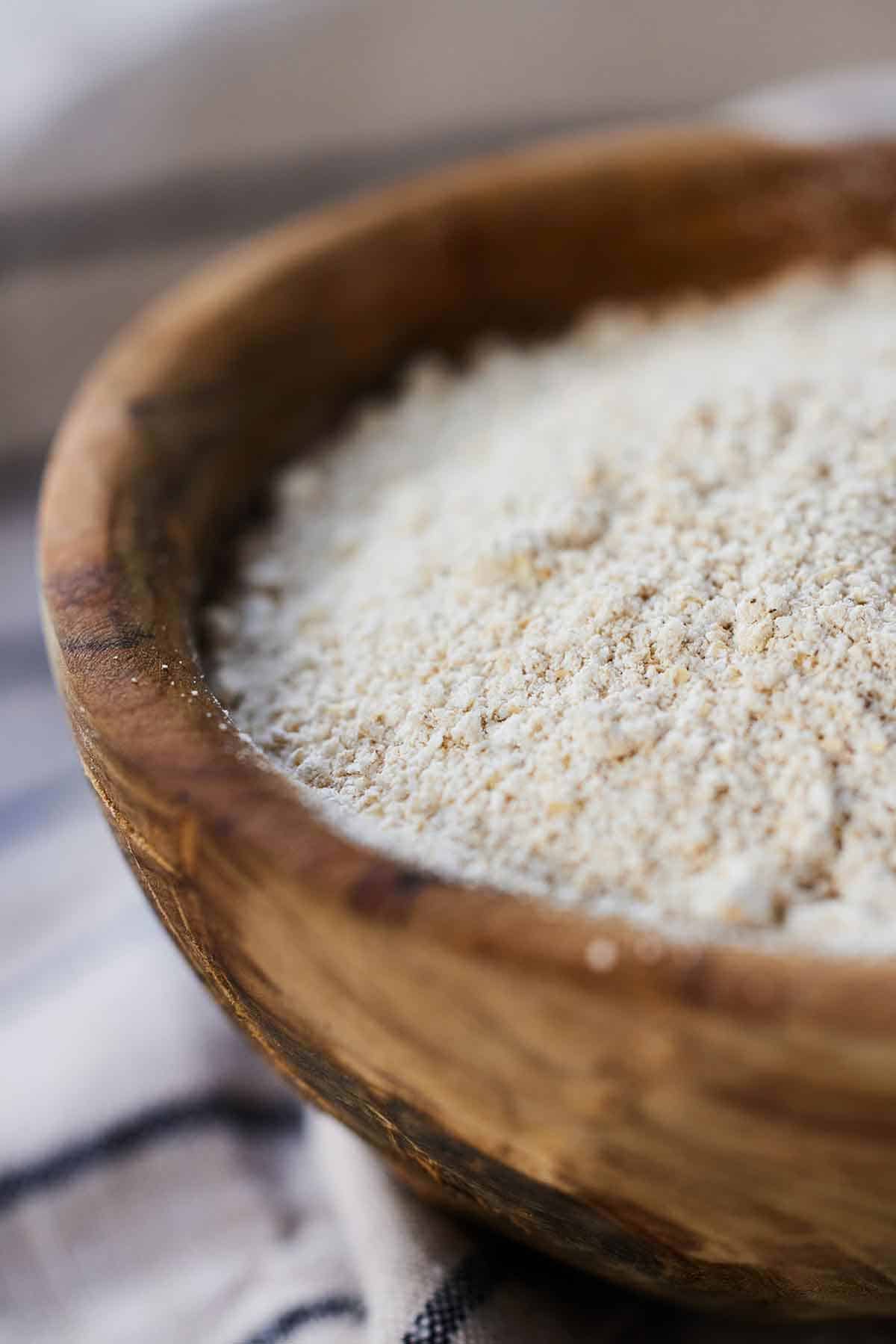
Frequently Asked Questions
While you could replace all-purpose flour with oat flour, you’ll need to replace them by weight as all-purpose flour is heavier. However, I highly recommend using this in recipes that call for them to ensure the baked goods come out as intended. For example, you should not swap out the all-purpose flour in bread as it needs the gluten in all-purpose flour to rise. You’ll need additional ingredients to make up for the lack of gluten.
Both flours have their pros and cons but similar to rolled oats, this flour contains a lot of nutritional benefits. Check out this post from Harvard to learn more about the nutritional benefits of oats.
If stored correctly, homemade flour made from rolled oats will last about 3 months. You can store the flour in the freezer to extend its shelf-life for up to 6 months. Since making this flour at home doesn’t take a lot of effort, you can always just blend what you need.
If you’ve tried this Oat Flour Recipe, then don’t forget to leave me a 5 star rating and let me know how it went in the comments below!
How to Make Oat Flour
Ingredients
- 1 ½ cups old fashioned oats quick oats, or steel coat oats
Instructions
- Add your oats to the blender. Blender until the oats have turned into a fine powder.
- Store extra oat flour in an airtight container for use at a later time.
Video
Notes
- If there are a few large pieces that just won’t blend, simply sift them out with a fine-mesh strainer.
- Once the rolled oats have been processed into flour, their shelf life does shorten a bit. Be sure to store them in an airtight container in a cool dark place away from direct sunlight.
- If you do not have a blender, a strong food processor will work as well.
- Make sure to purchase certified gluten-free rolled oats if you require the flour to be gluten-free. While oats are naturally gluten-free, you cannot guarantee that all rolled oats are gluten-free due to cross-contamination at the processing center. Oats labeled gluten-free are processed in a gluten-free facility.


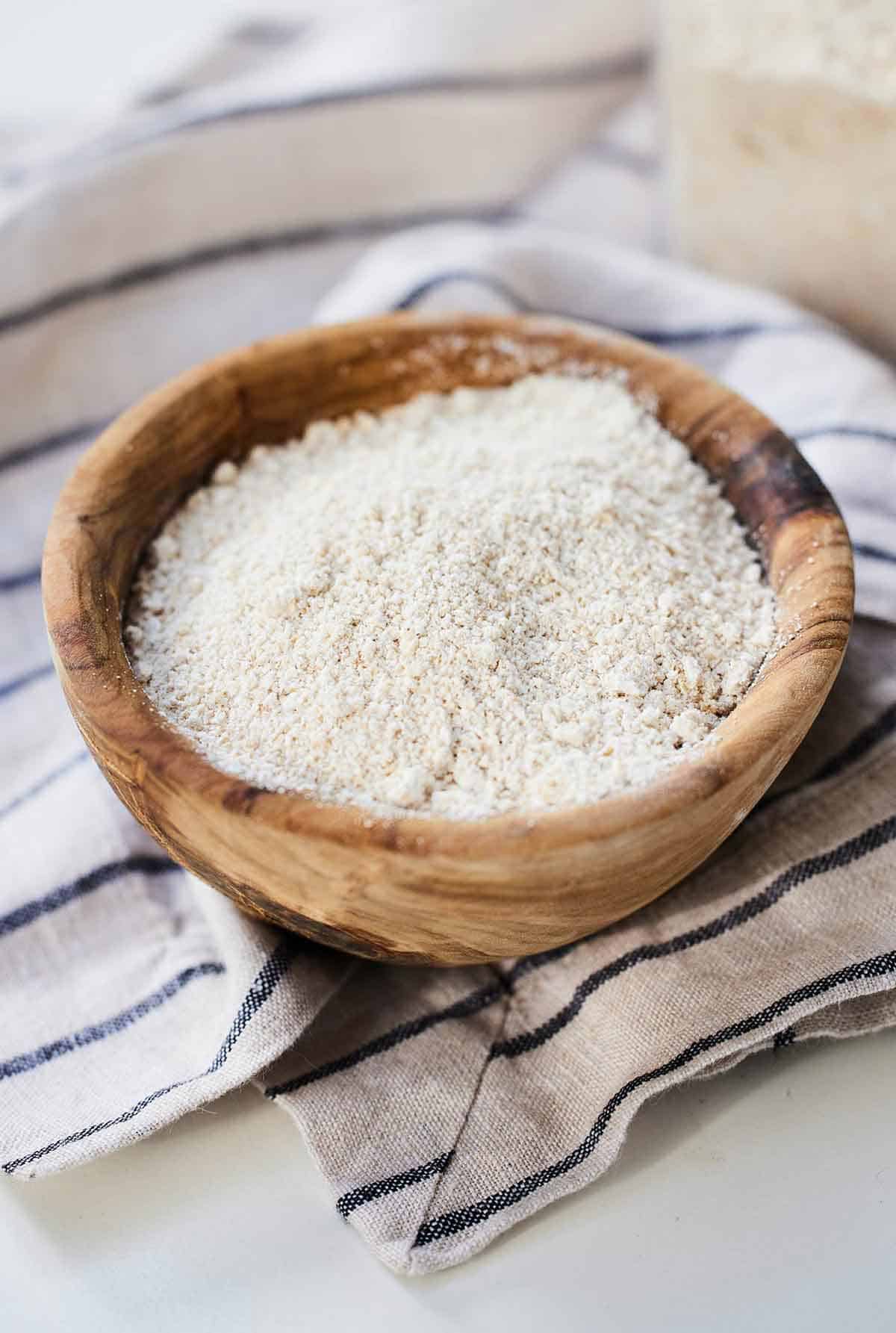
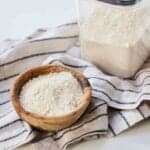
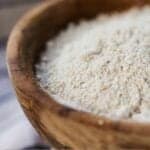
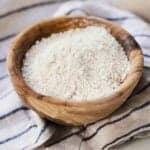
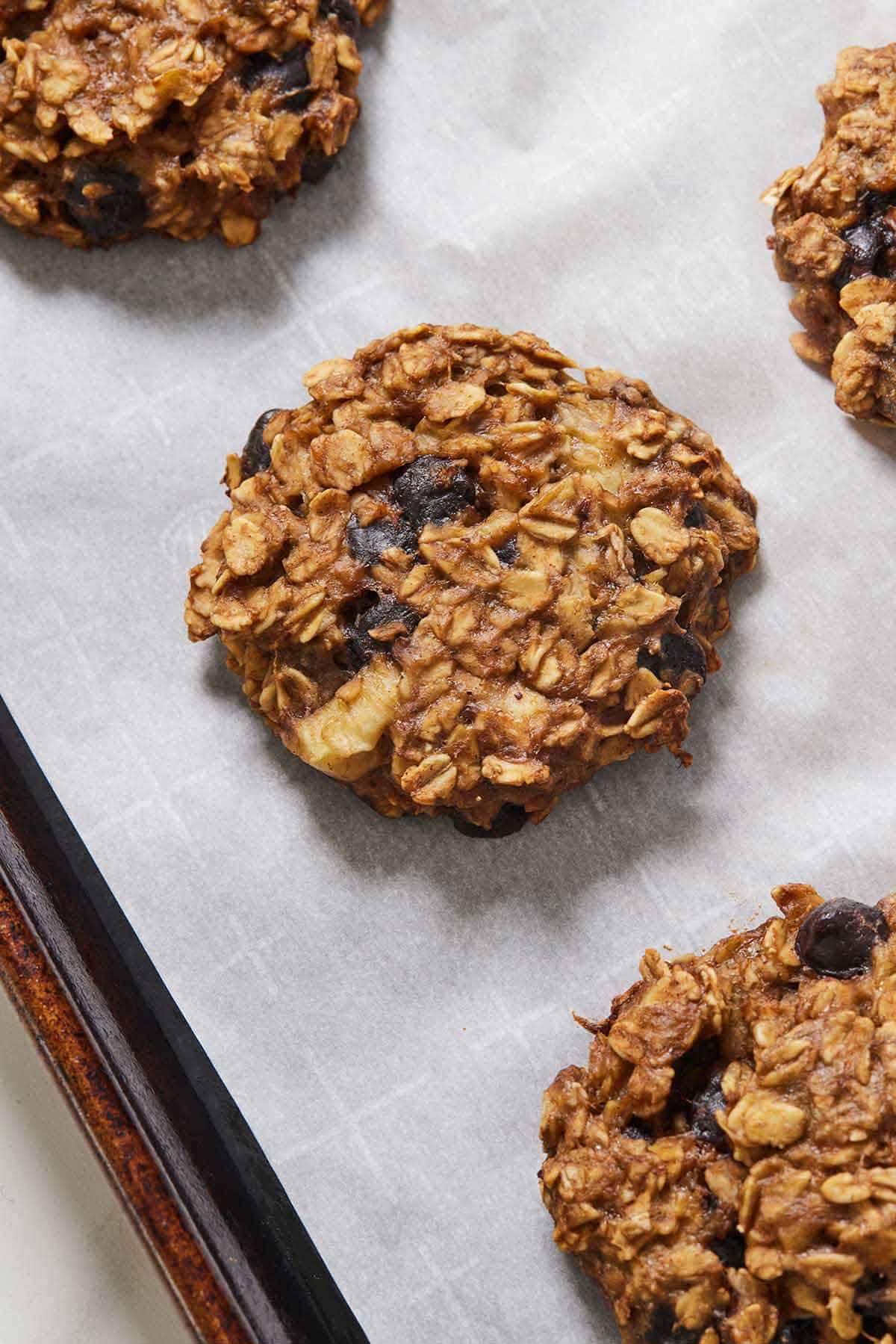
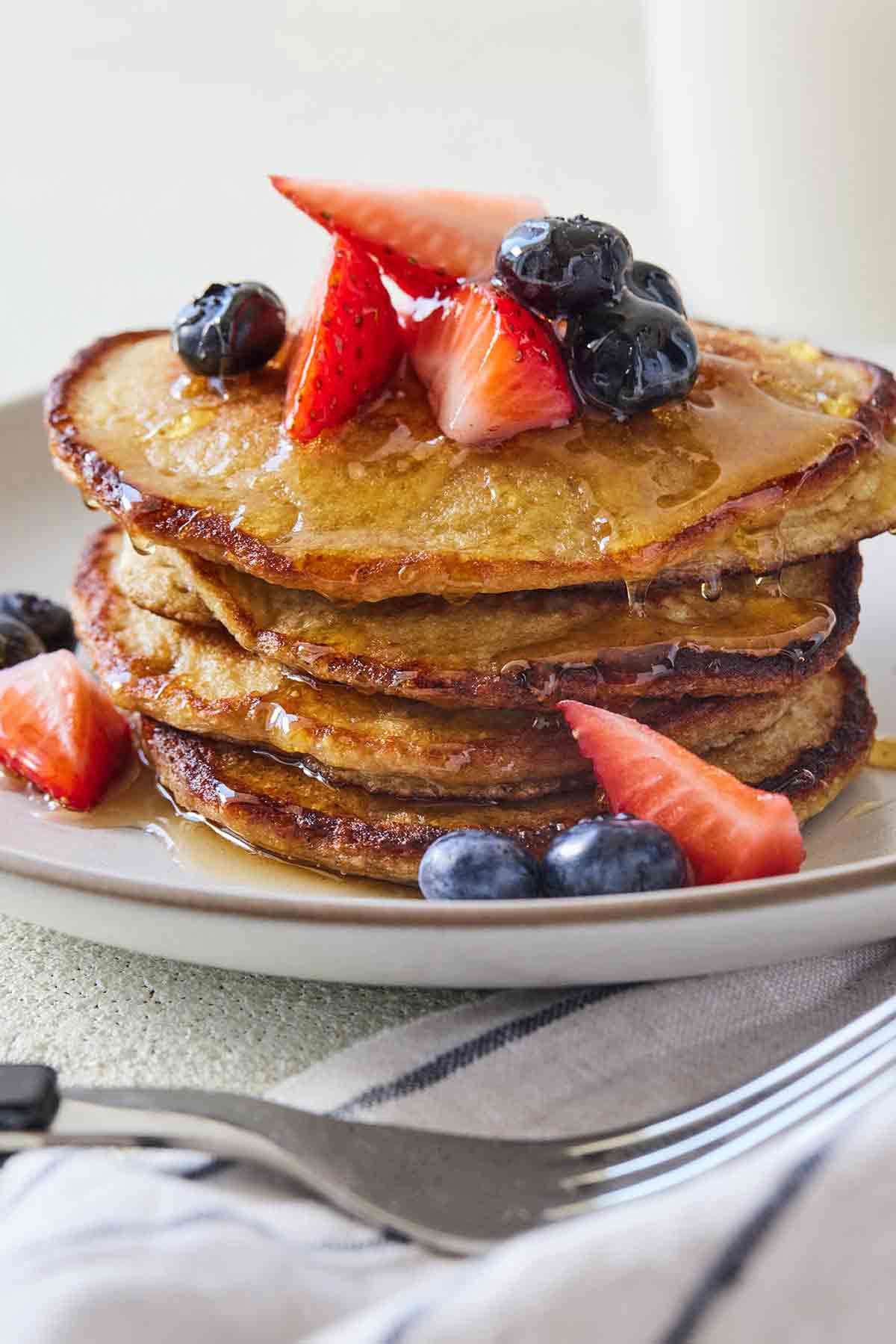
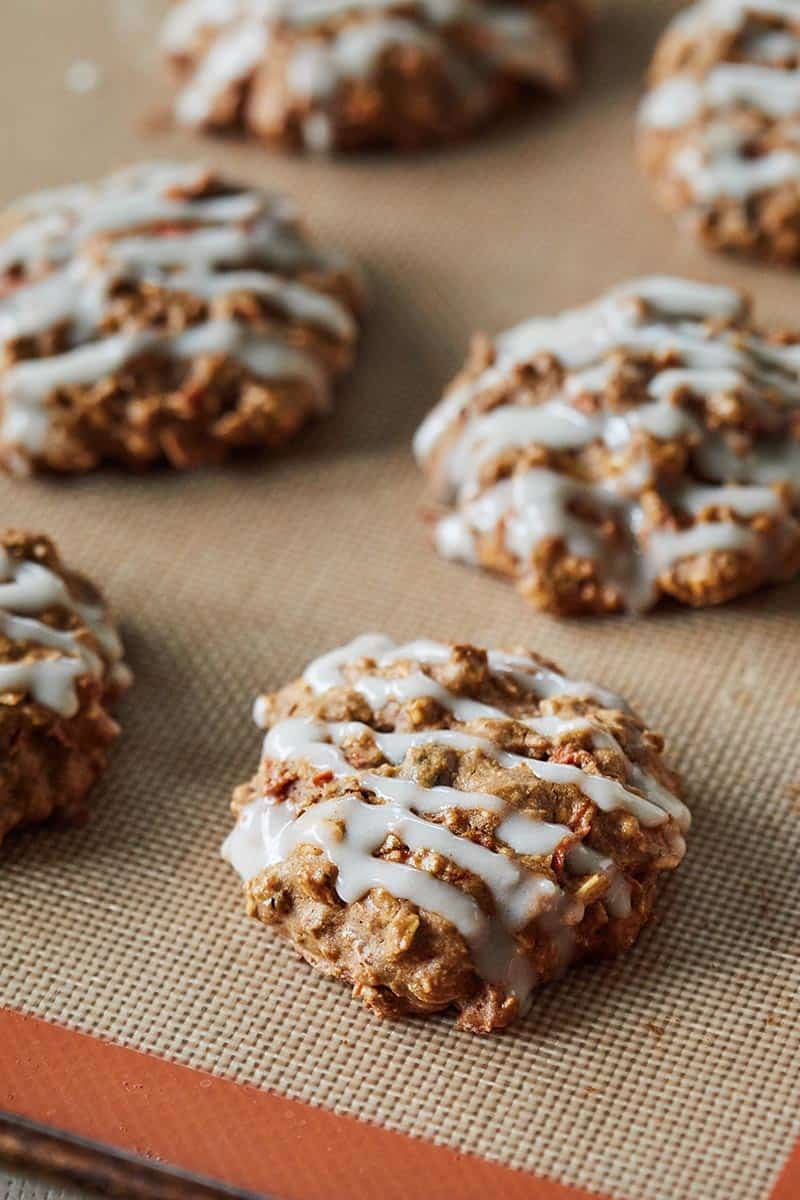
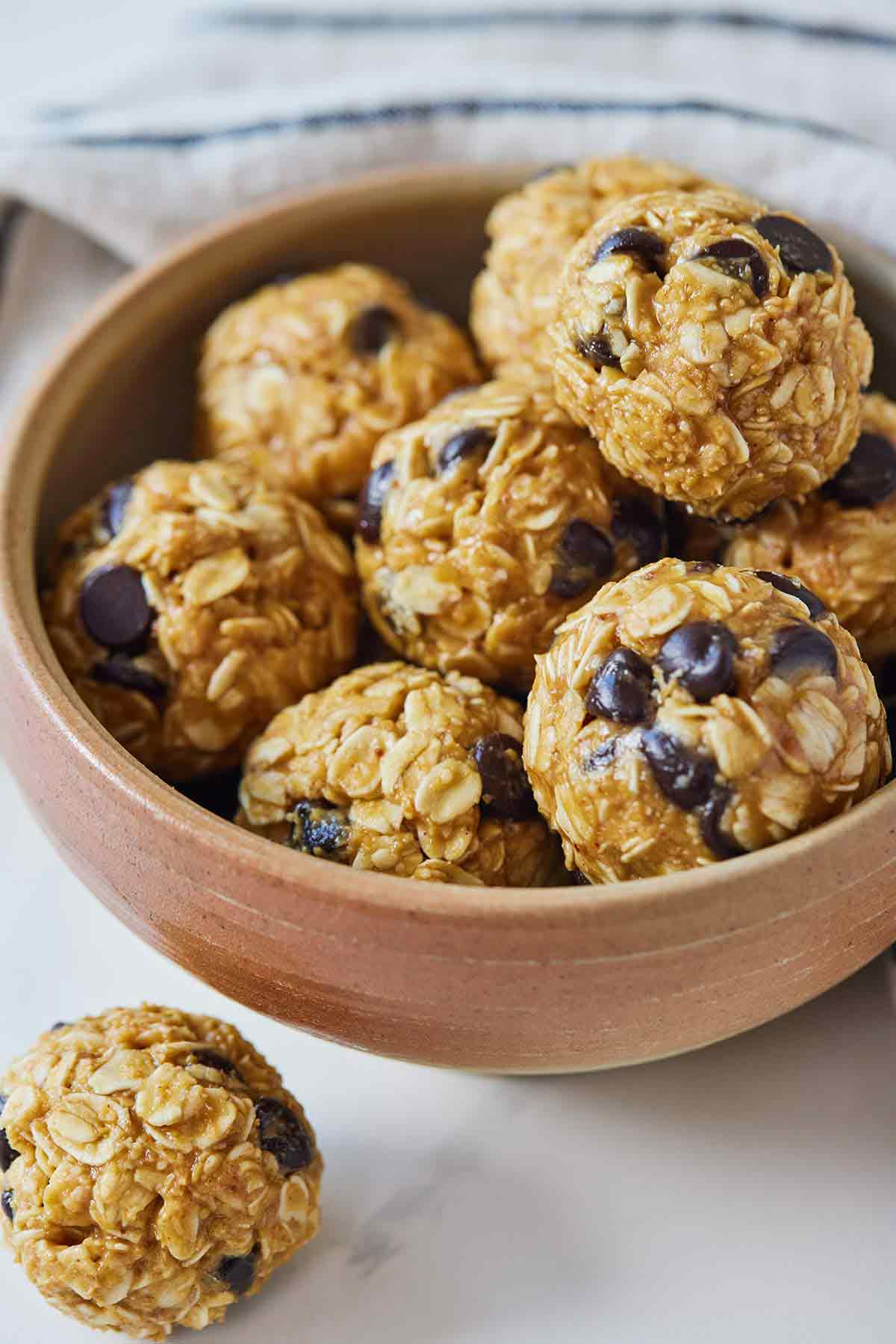
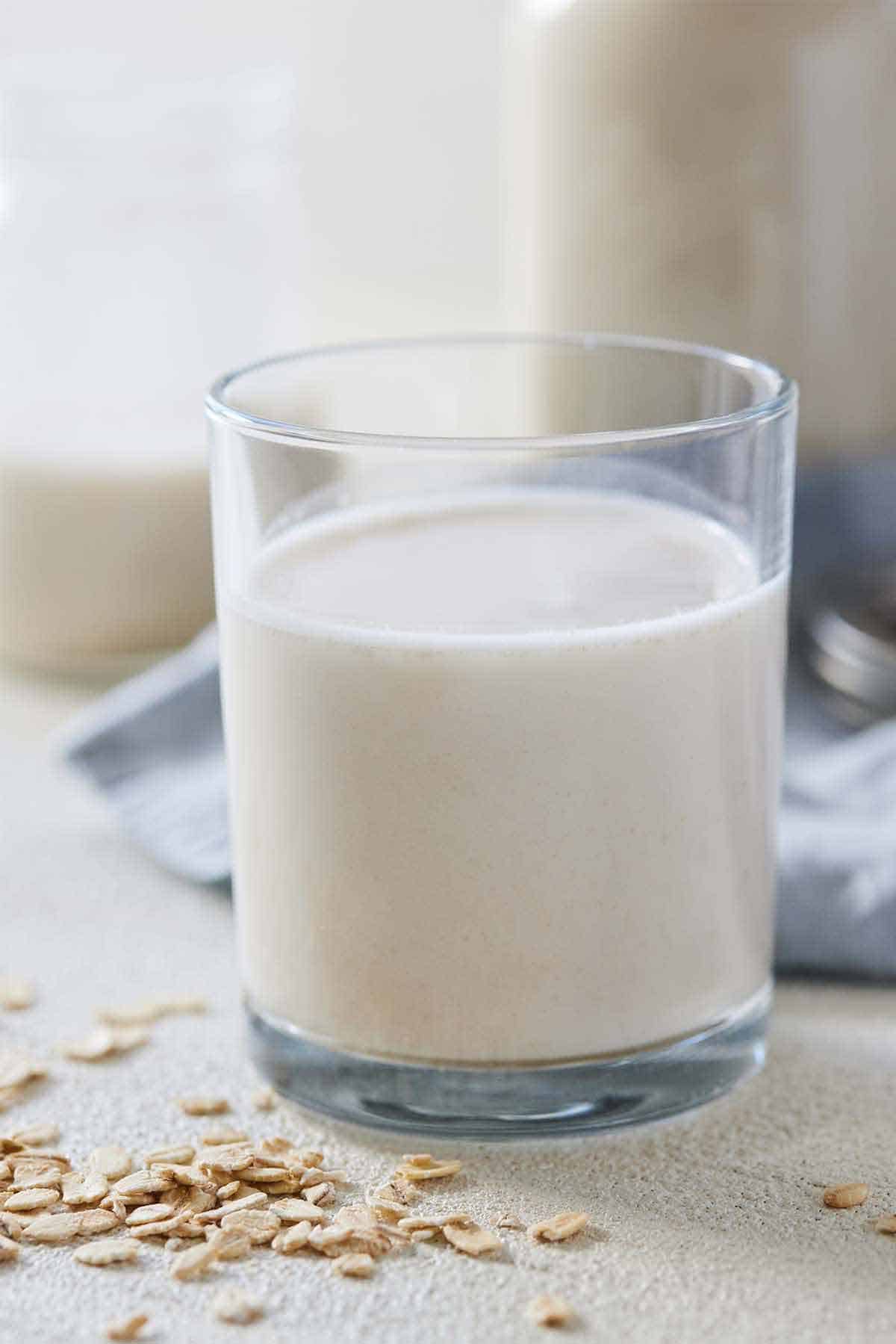
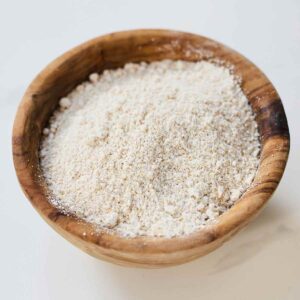
Leave a Reply